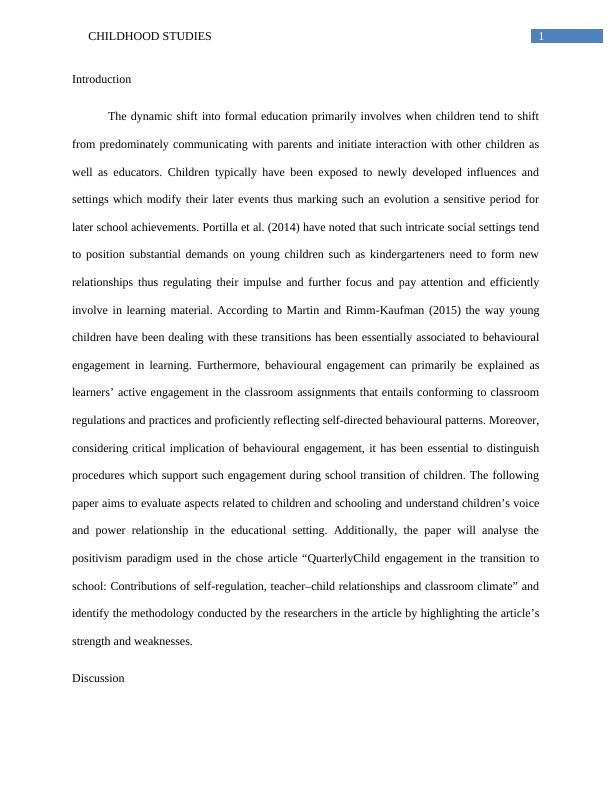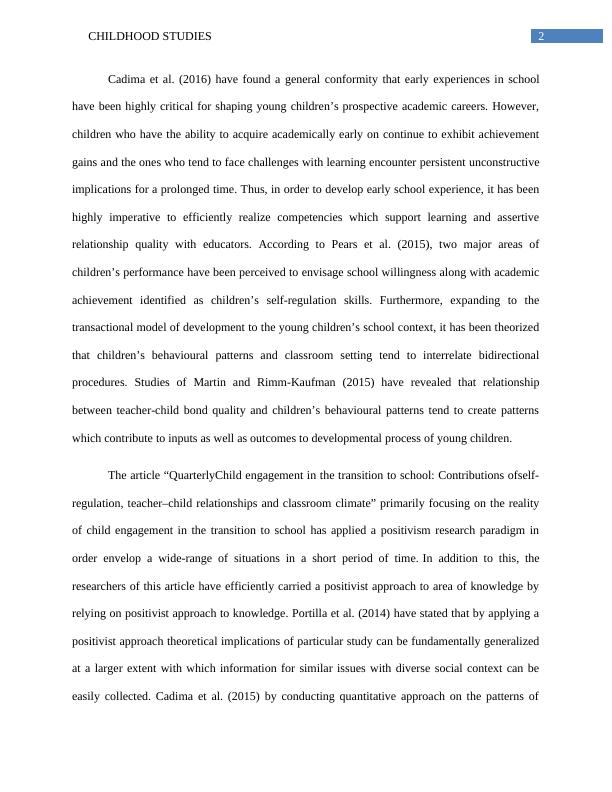Childhood Studies: Behavioural Engagement in the Transition to School
This assignment requires conducting a literature review on the topic of CHILDREN AND SCHOOLING, selecting one article from the provided relevant articles, and analyzing it using a new sociology of childhood framework to explore themes such as agency, children's voice, and power relationships.
10 Pages2858 Words295 Views
Added on 2023-04-26
About This Document
This article evaluates the importance of classroom environment and social relationships for children's inhibitory power and behavioural engagement in learning. It analyses the positivism paradigm used in the research and the contributions of self-regulation, teacher-child relationships and classroom climate to behavioural engagement in learning.
Childhood Studies: Behavioural Engagement in the Transition to School
This assignment requires conducting a literature review on the topic of CHILDREN AND SCHOOLING, selecting one article from the provided relevant articles, and analyzing it using a new sociology of childhood framework to explore themes such as agency, children's voice, and power relationships.
Added on 2023-04-26
ShareRelated Documents
End of preview
Want to access all the pages? Upload your documents or become a member.
Classroom Interactions, Dyadic Teacher-Child Relationships, and Self-Regulation in Socially Disadvantaged Young Children
|4
|1747
|297
Child Care Center Analysis Assignment
|7
|1391
|22
Contemporary Issues in Prior to School and Primary School Teaching
|11
|2946
|498
Diploma in Early Childhood Education and Care PDF
|7
|1473
|174
Poststructuralist Theory and Its Practical Implications for Health and Well-being in Early Childhood Education
|5
|798
|312
Actions Needed to Advocate For Play Pedagogies in Early Education
|9
|2566
|59



